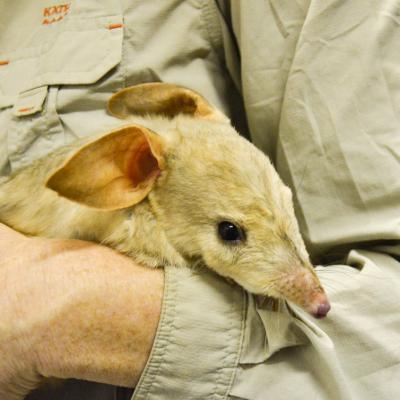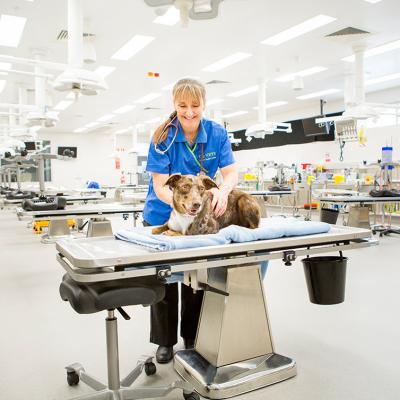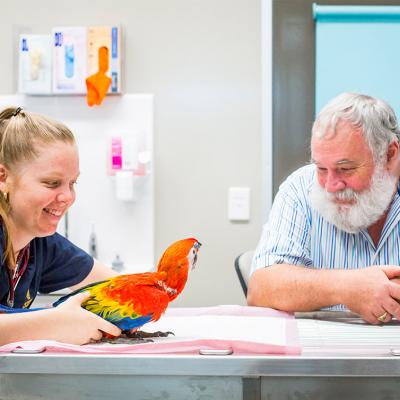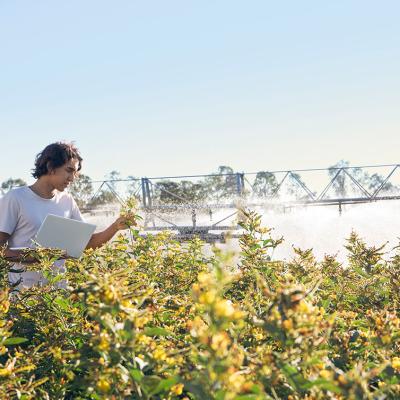A common misconception about animal science is that it’s just about being a veterinarian. But this isn’t the case. There are many amazing career opportunities for people with an animal science degree.
So, what do animal scientists do? In an animal science career, you’ll play an integral role in addressing some of the most pressing issues facing the world, including:
- environmental sustainability
- conservation
- the impact of climate change on animals
- animal welfare
- food security.
You’ll study domestic and wild animal species and their behaviour, monitor species population, and work in the agricultural sector with livestock to better understand the biological and chemical processes behind the growth and performance of animals. Animal science can also be a research-oriented career, where you’ll work in universities, government organisations, and private industries to study animals in the wild and in captivity to assist in maintaining and improving their productivity, health, and welfare.
To help you get a better understanding of what an animal science career in Australia can look like, we’ve collated a few examples of the diverse roles available to you after completing a degree in this exciting field.
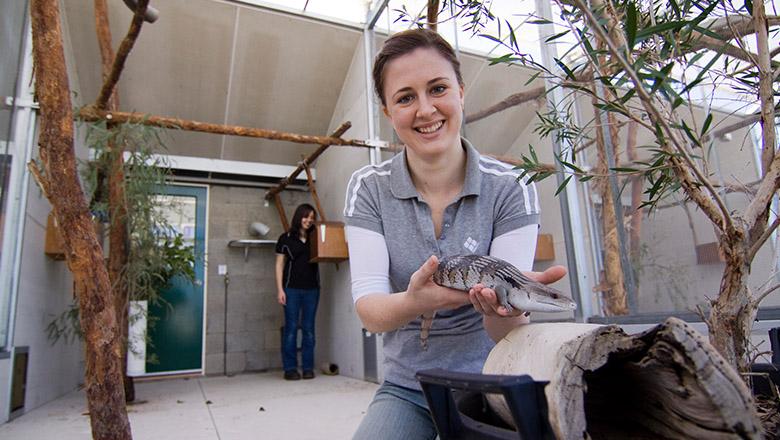
Wildlife scientist
Wildlife scientists study and manage wildlife populations in a variety of settings. This is a diverse role where you’ll use your skills and knowledge in many different settings – from field and lab work, all the way to interacting with communities and advocacy groups.
What does a wildlife scientist do?
Some of the tasks you can expect to complete as a scientist that works with animals include:
- interacting with other scientists, wildlife professionals and advocacy groups within the community to preserve and monitor animals in the wild and in captivity
- planning and coordinating wildlife assessment activities and research
- consulting on site and environmental assessments to address potential risk to wildlife biology
- becoming an advocate and spokesperson for wildlife and ecosystem issues, as it relates to your research
- collecting biological data and specimens for analysis
- developing and conducting experimental studies with animals in controlled or natural settings.
A career as a wildlife scientist is perfect for anyone with a passion for the conservation and protection of wildlife and the environment.
Wildlife scientist skills
Some of the skills you’ll need as a wildlife scientist include:
- strong verbal and written communication skills to work successfully alongside scientists, advocates and community representatives on many different projects on a national, regional, and international scale
- high attention to detail
- strong analytical thinking and problem-solving skills
- organisational and project management skills.
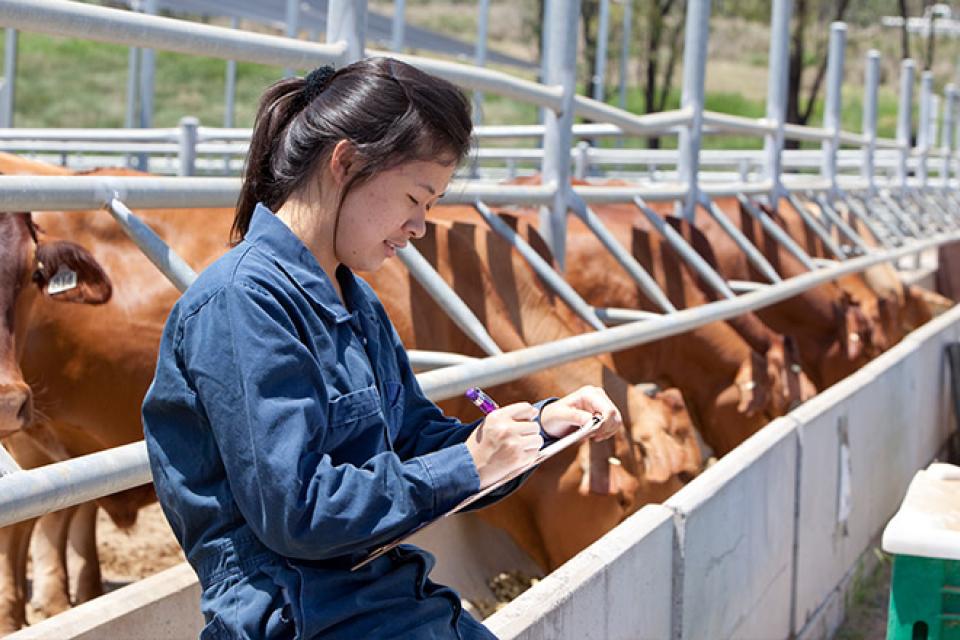
Animal nutritionist
Animal nutritionists are responsible for creating diets for a variety of animals through the close examination of their genetics, health, metabolic status, performance level and many other factors. It’s a very multi-faceted role where you’ll study and evaluate the dietary needs of a diverse array of animals from livestock through to wildlife.
What does an animal nutritionist do?
Some of the tasks you can expect in this role include:
- providing education to farmers, zookeepers and other groups on appropriate and healthy diets, dietary planning, and the preparation of food to treat illness or disease and to improve the quality of life for animals
- evaluating the nutritional needs of animals based on their level of productivity and the type of physical activity they perform
- researching animal nutrition to stay up to date and knowledgeable on the current dietary needs of animals
- investigating nutritional supplements to reduce methane production from ruminants
- evaluating animals in laboratory trials and summarising results
- developing and administering food and nutrition policies as required.
Animal nutrition is the perfect career for people who have a passion for all animals and their wellbeing, and a keen interest in nutrition science.
Animal nutritionist skills
Some of the skills you’ll need in this role include:
- strong verbal and written communication and listening skills are required to work with farmers, veterinarians and other stakeholders to prepare nutritional strategies for animals
- a strong grasp of maths concepts to calculate accurate food ratios for an animal’s meal plans
- computer literacy to properly understand ration formulations, which are computer based
- critical thinking skills to best understand and evaluate the level and type of activities an animal performs to accurately develop nutritional strategies that suit an animal’s specific needs.

Ecologist
Ecologists, or wildlife ecologists, play an increasingly important role in protecting and preserving ecosystems currently under threat from climate change. They study the relationship between plants, animals, soils, and the climatic environment. You’ll find ecology roles in many different places, including government agencies, environmental groups, large pastoral companies, conservation not-for-profits and charities, and research institutes.
What does an ecologist do?
Some of the tasks you can expect in this role include:
- monitoring and reporting on animal population numbers
- assessing the interactions between wildlife and production animals
- protecting ecosystems and native wildlife against habitat loss, disease, and other environmental and conservation issues
- examining important animal characteristics, such as their life history patterns, behaviour, diet, population numbers, and habitat use
- conducting field research and preparing written reports on your findings
- conducting scientific evaluations on soil, plant, water, and animal samples.
If you’re passionate about conserving the world’s ecosystems and biodiversity and protecting at-risk animals from the impacts of climate change, a career as an ecologist could be the perfect fit for you.
What skills do you need to be an ecologist?
Some of the skills you’ll require include:
- a passion for the natural environment
- the ability to conduct research in the field and synthesise complex data gathered from your observations
- high standards of accuracy and attention to detail.
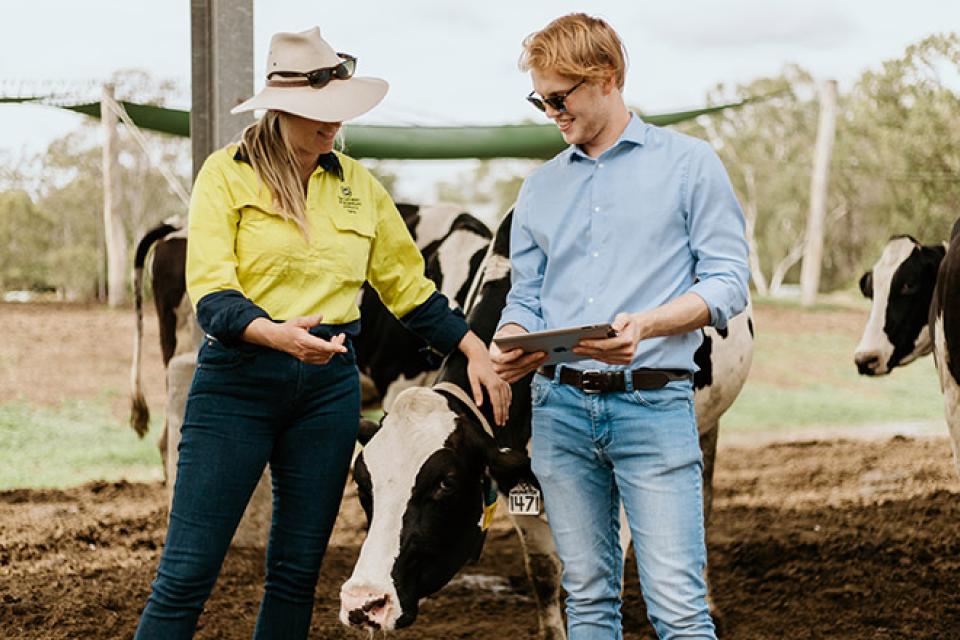
Studying animal science at UQ
As you can see, a qualification in animal science opens doors to many exciting and rewarding career opportunities. If this seems like the right fit for you and you’re interested in studying animal science, start exploring some of the programs available at UQ:


